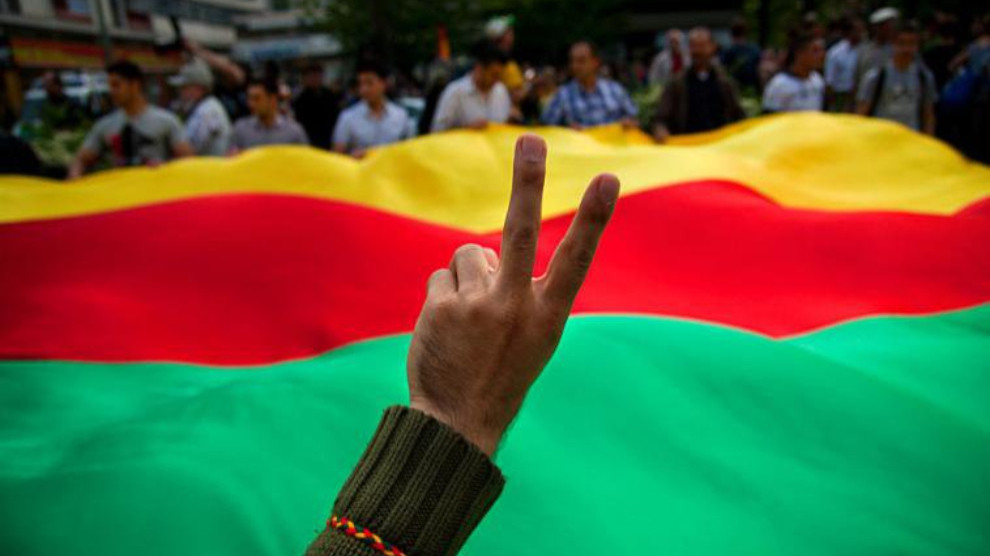German MP Hahn: End the criminalisation of Kurdish symbols
The German politician said that the diffuse right-wing position in dealing with the flag of Rojava restricts numerous people in their freedom of opinion and assembly.
The German politician said that the diffuse right-wing position in dealing with the flag of Rojava restricts numerous people in their freedom of opinion and assembly.

The deputy leader of the German Left Party, André Hahn, had asked the federal government in an oral question to comment on whether the yellow-red-green flag of the Democratic Federation of Northern Syria was banned. The State Secretary to the Federal Ministry of the Interior, Günter Krings, replied on behalf of the federal government:
"The showing of the flag of the so-called Democratic Federation of Northern Syria, also known as Rojava, is not prohibited in Germany per se, but whenever it is used by an already banned association (here the Kurdistan Workers' Party - PKK, banned in 1993) in such a way that it promotes its cohesion or propagandistically refers to its goals. Whether the showing of the above-mentioned flag is to be included under it, must be decided by the responsible authorities of the states in each individual case."
The leftist domestic politician Hahn commented on the answer as follows: "The diffuse right-wing position in dealing with the flag of the Syrian-Kurdish Rojava restricts numerous people in their freedom of opinion and assembly. Although this flag in the yellow-red-green longitudinal stripes is actually legal, showing the flag can be seen as criminal advertising for a forbidden association, depending on the situation and the local police authority. This practice, which borders on arbitrariness, is completely unacceptable under the rule of law. It is in no way compatible with the principle of certainty in criminal law for local investigative authorities to decide on a case-by-case basis whether the display of the Rojava flag, which is in itself lawful, is prohibited in a specific situation. This dubious practice exists in relation to numerous characteristics of completely legal Kurdish organisations. The Federal Ministry of the Interior must finally ensure clarity - for example by means of circulars to the federal states - so that the criminalisation of Kurdish symbols and the associated restrictions on freedom of assembly and opinion are brought to an end".